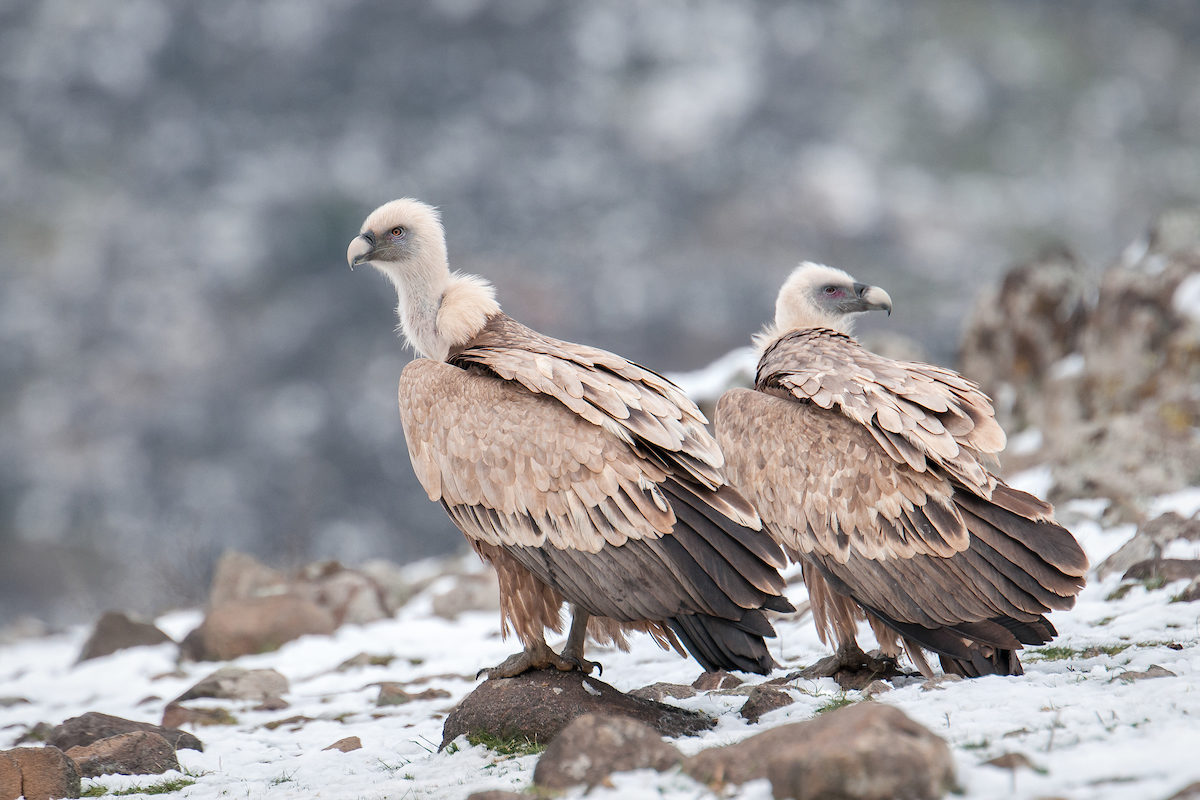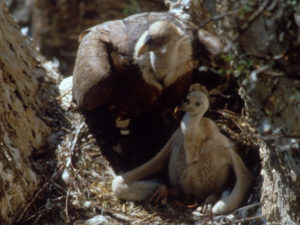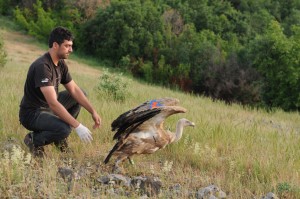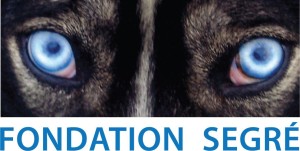More than 70 griffon vulture chicks have so far hatched in the Rhodope Mountains rewilding area in Bulgaria this year. This encouraging figure continues the upward trend in numbers experienced in recent years.

Optimistic outlook
Rewilding Europe is thrilled to announce that 73 griffon vulture chicks have so far hatched in the Rhodope Mountains rewilding area in Bulgaria this year. The Rewilding Rhodopes team and vulture experts from local partner the Bulgarian Society for the Protection of Birds (BSPB) visited all the nesting sites in the eastern part of the Rhodopes Mountains in mid-May to conduct the count. This number may increase in the coming weeks, as some nesting vultures that lose their brood will nest again (with delayed hatching).
With 51 chicks hatching in 2016, this year’s result continues the positive growth witnessed in recent years.
“Over the last four years we have seen both the number of nesting griffon vultures and the number of hatchlings follow a broad upward trend,” says Dobromir Dobrev, a vulture expert attached to the Rewilding Rhodopes team. “This is no time to rest on our laurels, but this is really encouraging and demonstrates that rewilding efforts are bearing fruit.”
Supporting cross-border comeback
The griffon vulture was once widely distributed across Bulgaria. But by the early 1970s, it was thought to have disappeared completely, largely due to the decreasing availability of food, habitat loss, persecution and poisoning. In 1986, a griffon vulture colony was discovered near the small town of Madjarovo in the Eastern Rhodope Mountains, consisting of about 20 birds and three nesting pairs. Ongoing conservation efforts, many carried out by the BSPB, have seen the birds recover to their current level.
Starting in 2016, the five-year LIFE Vultures project was developed by Rewilding Europe, in collaboration with the Rewilding Rhodopes Foundation, the BSPB, and a range of other partners.
Focusing on the Rhodope Mountains rewilding area in Bulgaria (where the griffon vulture colony is located), as well as a section of the Rhodope Mountains in northern Greece, rewilding efforts are focused on supporting the recovery and further expansion of the griffon and cinereous (black) vulture populations in this part of the Balkans, mainly by improving natural prey availability, and by reducing mortality through factors such as poaching, poisoning and collisions with power lines.

Flight path
Vulture chicks typically hatch at the end of March and early April. They are then raised by their parents for nearly four months until they are ready to fly, taking to the air for the first time around 140 days after birth. By the middle of summer, the young vultures typically weigh about seven to eight kilogrammes; while they are not quite as heavy as their parents, they are the same size and have all their feathers (although the colouring in juvenile vultures is different to adult birds).
Griffon vultures are known to be caring parents, with both partners changing position while hatching the egg and raising their chick. During hot summer days, each parent can spend hours with extended wings, shading their offspring.

As the GPS tagging of juvenile griffon vultures from the Rhodope Mountains rewilding area has illustrated on a number of occasions, young birds have a tendency to roam once they have left the nest. They undertake long-distance voyages until around their fifth year when they reach maturity. The inexperienced birds are exposed to many dangers on these flights (such as poisoned baits and collision with power lines), with nearly three-quarters failing to make it to adulthood. As well as revealing the migration routes of the vultures, the data provided by the GPS tags help the rewilding team to identify possible threats to the birds, thereby enhancing their conservation.
Want to know more?


